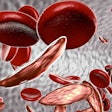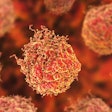
The U.S. National Council on Disability (NCD) is calling for greater regulation of genetic testing -- with a particular focus on noninvasive prenatal testing (NIPT) -- in a new report.
The NCD, which is an independent government agency charged with advising policymakers, examined the effects of genetic testing on disabled communities and analyzed the various factors that influence prenatal genetic testing. Its findings were published in the report, titled "Genetic Testing and the Rush to Perfection," on October 23.
The agency analyzed the game-changing effects that NIPT has had on genetic testing and analysis, with its virtually risk-free blood draw and the early stage at which it can be implemented. Testing can be done at nine weeks into a pregnancy, and NIPT has a high rate of accuracy and few false positives, such as when determining whether a fetus has Down syndrome.
NIPT falls under the category of laboratory-developed tests (LDTs), which are generally established and patented by a sole lab that also develops a market for the test/product and runs the test. As stated in the report, although the U.S. Food and Drug Administration (FDA) has full authority to regulate LDTs, it has generally exercised "enforcement discretion" and not applied new regulatory requirements. Because of this, the U.S. Centers for Medicare and Medicaid Services (CMS) provides oversight of labs and LDTs through the CLIA program.
The report differentiates analytical validity from clinical validity. Analytical validity "questions whether a test consistently and accurately measures what it is supposed to detect," whereas clinical validity "questions whether the measured change results in an increased risk or likelihood of having an identifiable medical condition." CMS tends to solely examine the analytical validity of LDTs and, even then, usually in the context of a single lab. Because of the FDA's lack of oversight of LDTs, under which the agency could require clinical validity, it is difficult to determine a direct scientific or statistical link between genetic testing and healthy pregnancies.
Broad-ranging recommendations
The NCD's recommendations in the report address these issues, not only for genetic testing researchers but also for entities such as Congress, professional organizations engaged in genetic counseling, state legislatures, and the Department of Health and Human Services (DHHS).
For Congress, the NCD recommended the enforcement of "sunshine laws" and conflict-of-interest provisions, which would make it necessary for pharmaceutical companies and any other relevant medical treatment or device companies to reveal the relationship they have with prescribing healthcare providers. Moreover, the agency recommended funding the Prenatally and Postnatally Diagnosed Conditions Awareness Act, which is designed to assist women whose fetus or baby has received a Down syndrome diagnosis.
The NCD tasked genetic researchers with developing ways to obtain better data for determining the relationship between prenatal testing results and multiple factors associated with genetic testing, including counseling, cultural background, and societal expectations and determinants for health in specific disability communities.
Along with developing relationships with disability advocacy organizations and encouraging advocates from disability communities to attend biomedical conferences, the NCD recommended that the DHHS work with the FDA to terminate "enforcement discretion" and begin regulating LDTs, particularly NIPT. This way, a standard can be developed to assess the accuracy of claims made by organizations that handle prenatal genetic testing. Additionally, the U.S. Federal Trade Commission should oversee marketing by genetic testing organizations, as more tests with "questionable clinical validity" are becoming available, according to the report.
Rishbha Bhagi is an associate editor at Instrument Business Outlook (IBO).
Disclosure: LabPulse.com is a sister company of IBO.



















